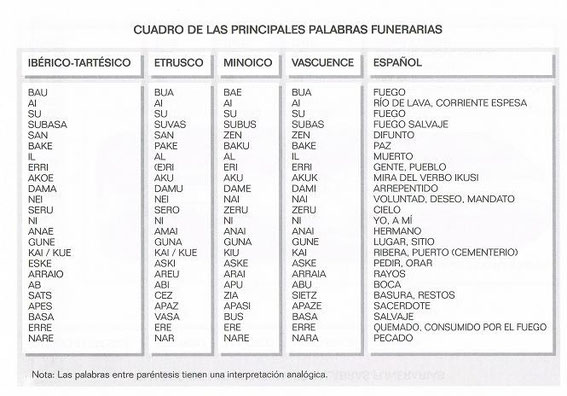Hi everyone,
Recently I finished about mental illness and while there's a lot in that book, one of the striking concepts personally was that our behavior/symptoms could be understood as a form of language. A few weeks later, a very good friend of mine mentioned that he had run into an author that spoke about romance languages not really having a Latin origin, this was of course quite a shocking idea yet, it made enough sense for me to give it a shot. I ordered the book my friend mentioned and have started reading it.
While the book was on its way, I decided to do a bit of digging into the author and see if I could get more information on the subject and on the author herself, I ran into several interviews and debates that she has on her youtube channel and I must say that I am quite intrigued by this person.
Her bio in amazon reads:
On her interviews and debates, she delves into several interesting topics that I feel deserve a discussion here, but there's so many that I think it'll require several posts to be able to do them all justice. I decided to start one here for others who may be familiar with her or interested in the subject, to participate and expand on her ideas. I will be adding more to this thread as I keep on digging through the ideas she presents.
As a small opening summary, from what I have been able to gather so far, Carme suggests that the way we are taught language stories is deeply influenced by 18th century darwinism, that is the study of languages has been mostly ideological and not scientific. On that note she also seems to be making the case that languages seem to emanate from a morphic field that we all can and do access and that's where languages come from, for this she points to the contradiction of the evolutionary idea that languages today are a devolution of a perfect mother tongue, that was at the same time spoken by the most primitive or unevolved of beings.
She also points out that human beings do not wait to have a grammar to speak, which sounds rather logical, but when looked at from that point of view it makes sense, that in essence language predates writing or the declaration of grammar. Linguists articulate the existing rules of an already spoken language and not the other way around. And these languages are spoken by people who are maybe unaware that they're using a complex set of rules to communicate.
She also speaks about the origin of romance languages, and seems to even be suggesting an Atlantean connection to what people spoke in Europe way before the roman empire made Latin a widespread form of writing. In this same interview her and a few other people she's having a debate with have an interesting conversation about sounds and the meaning of them, the sounds we can create and how those became the syllables and how those syllables became words. Adding an intelligence to the development of languages as opposed to an accidental evolution of grunts into deep concepts.
She also ascribes to the idea that we need language to think, and also has a lecture where she analyses the current state of the world and how it came to be and how it was so easy to make everyone comply with silly norms, from the context of language and how broadcasting certain messages "speak" to a certain part of ourselves and this generates a certain reaction that makes us predictable.
She speaks about water and its intelligence, genetics, vibration and emotions, and a lot more.
All in all, she's working with several interesting concepts that I will try to develop further below, so allow me to ask for your patience and let's hope I can do the ideas she's working with some justice. Stay tuned!
Recently I finished about mental illness and while there's a lot in that book, one of the striking concepts personally was that our behavior/symptoms could be understood as a form of language. A few weeks later, a very good friend of mine mentioned that he had run into an author that spoke about romance languages not really having a Latin origin, this was of course quite a shocking idea yet, it made enough sense for me to give it a shot. I ordered the book my friend mentioned and have started reading it.
While the book was on its way, I decided to do a bit of digging into the author and see if I could get more information on the subject and on the author herself, I ran into several interviews and debates that she has on her youtube channel and I must say that I am quite intrigued by this person.
Her bio in amazon reads:
Carme Jiménez Huertas is a philologist specializing in linguistics. Her passion for language led her to investigate cognitive processes and behavioral patterns. She trained in social skills, communication and language. She is a writer, researcher and lecturer. She is the author, among others, of the essay "No venimos del latín" translated into English (Romance Did Not Begin in Rome) and Romanian (Nu venim din latină), in which she defends the antiquity of Romance languages.
On her interviews and debates, she delves into several interesting topics that I feel deserve a discussion here, but there's so many that I think it'll require several posts to be able to do them all justice. I decided to start one here for others who may be familiar with her or interested in the subject, to participate and expand on her ideas. I will be adding more to this thread as I keep on digging through the ideas she presents.
As a small opening summary, from what I have been able to gather so far, Carme suggests that the way we are taught language stories is deeply influenced by 18th century darwinism, that is the study of languages has been mostly ideological and not scientific. On that note she also seems to be making the case that languages seem to emanate from a morphic field that we all can and do access and that's where languages come from, for this she points to the contradiction of the evolutionary idea that languages today are a devolution of a perfect mother tongue, that was at the same time spoken by the most primitive or unevolved of beings.
She also points out that human beings do not wait to have a grammar to speak, which sounds rather logical, but when looked at from that point of view it makes sense, that in essence language predates writing or the declaration of grammar. Linguists articulate the existing rules of an already spoken language and not the other way around. And these languages are spoken by people who are maybe unaware that they're using a complex set of rules to communicate.
She also speaks about the origin of romance languages, and seems to even be suggesting an Atlantean connection to what people spoke in Europe way before the roman empire made Latin a widespread form of writing. In this same interview her and a few other people she's having a debate with have an interesting conversation about sounds and the meaning of them, the sounds we can create and how those became the syllables and how those syllables became words. Adding an intelligence to the development of languages as opposed to an accidental evolution of grunts into deep concepts.
She also ascribes to the idea that we need language to think, and also has a lecture where she analyses the current state of the world and how it came to be and how it was so easy to make everyone comply with silly norms, from the context of language and how broadcasting certain messages "speak" to a certain part of ourselves and this generates a certain reaction that makes us predictable.
She speaks about water and its intelligence, genetics, vibration and emotions, and a lot more.
All in all, she's working with several interesting concepts that I will try to develop further below, so allow me to ask for your patience and let's hope I can do the ideas she's working with some justice. Stay tuned!


